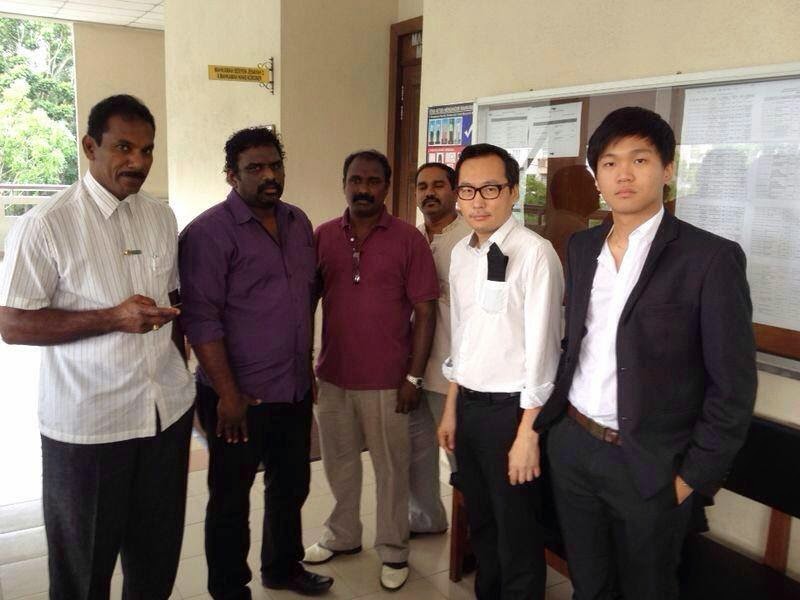I have a dream. A dream to see the values of democracy and freedom of expression being cherished through sufficient checks and balance in a government system.
The scientific rule is, "to every force is a reaction". Similarly, in a democracy, "there will be objections to every decision made".
I would say, perhaps it is a disguised blessing when voters become generally more critical of Pakatan Rakyat administrations. The standards set are much higher, and this is good for the people.
The recent Selangor menteri besar (MB) crisis reflects this perfectly. Tell me the last time people became so critical of the appointment of an MB?
The closest is perhaps the Perak constitutional crisis or the Terengganu MB crisis.
The earlier provided a lot of debating points in 2009 and it resurfaced in view of the Selangor MB crisis. The latter, however, did not offer much debates as it was quickly shot down by mainstream media.
Of course, Barisan Nasional would tell you it is because they are efficient. But who knows the story behind the scene anyway?
There were a lot of talks from the way the Kajang Move was triggered, to Tan Sri Khalid Ibrahim's sacking, then Datuk Seri Dr Wan Azizah's sole nomination all the way to Azmin Ali's appointment.
The spotlight in my opinion, was Dr Wan Azizah's eligibility as MB. It is no doubt the biggest debate on an opposition party's MB nomination since time immemorial.
Her proponents argued on her credentials and a positive breakthrough for women in politics, coupled with considerations she had the majority support of the state assembly. Her opponents on the other hand, argued on her gender and role as Datuk Seri Anwar Ibrahim's wife.
Wait, what? Gender?
The way Dr Wan Azizah's nomination was scrutinised was very different from any MBs or chief ministers in the history of Malaysian politics. The fact that she is a woman and happens to be the wife of the most famous politician in Malaysia has basically overshadowed her achievements as a mother, a wife and a politician.
But this is the fruit of a democracy. Though I am tempted to dismiss such opponents for undervaluing the meaning democracy and freedom of expression, I concur that differences in opinion are part and parcel of an everyday life.
From the food we eat, to the cloths we wear, or even the best football team in the Premier League, we are divided.
In this case, if Dr Wan Azizah's opponents put much more emphasis on gender, it is their prerogative, because that's their voice. They feel the need to place heavier weight to gender than merits.
Let's look to the other side of the fence. It is quite clear to me that BN MBs or CMs enjoy lesser scrutiny. What Dr Wan Azizah got screened thoroughly is a normal pass for BN MBs or CMs.
Were they scrutinised thoroughly for being Datuk Seri Najib Razak's remote-control MB? Were they scrutinised thoroughly for nepotism or corruption?
BN seems to be slightly different. Perhaps, they have accustomed minds to think that corruption is part and parcel of a BN MB's credential. The more allegations you have, the better it is.
So how far are we from enjoying the fruits of a democracy who values freedom of expression?
I can say perhaps half way there. While we demand for our voices to be heard, are we at the same time willing to hear dissidents out?
Comparatively between BN and Pakatan, the latter seems to have higher level of tolerance towards the ideals of democracy and freedom of expression.
There is scrutiny from within Pakatan itself. But can they take this system to Putrajaya?
Featured in:
The Malaysian Insider- http://www.themalaysianinsider.com/sideviews/article/the-silver-lining-to-the-mb-crisis-for-pakatan-adrian-lim#sthash.6xHoYQy6.dpuf
Malaysia Chronicle- http://www.malaysia-chronicle.com/index.php?option=com_k2&view=item&id=368831:first-azizah-now-azmin-but-which-umno-mb-is-not-remote-controlled-by-putrajaya?&Itemid=2#axzz3FMitcOAc










